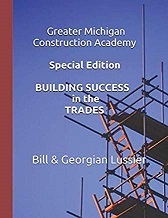Municipal Compensation System
 Sunday, March 14, 2021 at 06:53PM
Sunday, March 14, 2021 at 06:53PM Our copyrighted Compensation & Classification System is built on decades of experience working in Municipalities and Human Resources. The designers used jobs commonly found in Municipalities to develop the foundation of a point-factor system for salary ranges.
Offices of the Town Clerk, Tax Collector, Treasurer, Public Works, Police Officers, and Building Official are found in towns with populations as small as 3,000. Jobs in these departments are considered benchmarks and can be compared to similar positions in other communities.
Characteristics such as size and geographic region may demand that Municipalities deliver a specific range of services – some of them not found in neighboring communities.
A Town with a seacoast will need a Harbor Master to issue information to mariners, oversee the maintenance of navigational aids and coordinate emergency responses.
Maintaining historic properties can be a priority for a community, necessitating a job to coordinate and liaison with Local, State and Federal boards, commissions, and agencies.
Prosperous communities may fund a leading-edge library, offering film fests, lectures, high-tech support, and extensive community programs. Innovation is critical.
Communities looking to encourage expansion could establish a Business Development role to influence legislation and develop integrated workflows in town departments.
Providing basic services can include a local electrical service or water plant. The competitive employment market and required credentials of jobs in these functions may require both commercial and municipal salary survey data.
Our system takes all job dimensions into consideration. Levels of authority, impact on municipal services and credentials for common and unusual jobs, including marine biology, architecture, business administration and skilled trades, are fairly assessed.
Determining pay ranges within the context of a specific community demands impartial, experienced professionalism. Our practice of collaborative consulting includes conducting structured interviews, administering questionnaires, and applying logical decision criteria. We tailor each project to the priorities and unique features of the community and approach every challenge with confidence.
For more information about our Classification & Compensation Manual – Public Sector Version contact Ms. Georgian Lussier, georgianlussier@gmail.com or Ms. Randi Frank, randi@randifrank.com the developers.
Increased Brain Power!
 Wednesday, October 31, 2018 at 10:38AM
Wednesday, October 31, 2018 at 10:38AM 
This book will inspire you to eat better, exercise, learn something new and strengthen your social ties. And if you have concerns about a family member, there are clinical sections and resources to point you in the right direction. I heard a presentation by one of the authors, Dr. Andrew Budson, and marvel at how he uses a balanced mix of humor and neurological evidence to tackle the topic of staying sharp.
Self-Discovery, At Any Age
 Friday, May 25, 2018 at 09:07AM
Friday, May 25, 2018 at 09:07AM  The Smart but Scattered Guide to Success by Peg Dawson, EdD & Richard Guare,PhD, offers a novel way to look at the skills we need to execute tasks. They explore the "Essential 12" executive skills that impact our ability to deal with daily demands and achieve goals. The co-authors offer a series of books, including topics on how to help our kids prosper.
The Smart but Scattered Guide to Success by Peg Dawson, EdD & Richard Guare,PhD, offers a novel way to look at the skills we need to execute tasks. They explore the "Essential 12" executive skills that impact our ability to deal with daily demands and achieve goals. The co-authors offer a series of books, including topics on how to help our kids prosper.
Here are the 12 essential skills: Response Inhibition; Working Memory; Emotional Control; Task Initiation; Sustained Attention; Planning/prioritizing; Organization; Time Management; Flexibility; Metacognition; Goal-directed Performance, and Stress Tolerance.
Chances are, you have 3 strengths and 3 weaker areas, with six average-level skills. Even in my 60s, it is enlightening to reflect on what has helped/hurt me in getting this far. I recommend this book for every age. Based on a questionnaire, the book offers concrete tools and techniques, stories, and encouragement to appreciate natural gifts.











 I am honored to win the 2016 Community Media Rika Welch leadership award for community impact; a testimony to the Guests who shared their stories on MidLIFE Matters. In addition, an 2018 interview I did with Judith Altmann, a Holocaust Survivor, won an award. In 2020 and 2021 two other awards acknowledged the content of interviews dealing with Child Sex Trafficking in CT and Non-Profit leadership. In 2023 MidLIFE Matters won First Place for a Profile Talk Show.
I am honored to win the 2016 Community Media Rika Welch leadership award for community impact; a testimony to the Guests who shared their stories on MidLIFE Matters. In addition, an 2018 interview I did with Judith Altmann, a Holocaust Survivor, won an award. In 2020 and 2021 two other awards acknowledged the content of interviews dealing with Child Sex Trafficking in CT and Non-Profit leadership. In 2023 MidLIFE Matters won First Place for a Profile Talk Show.